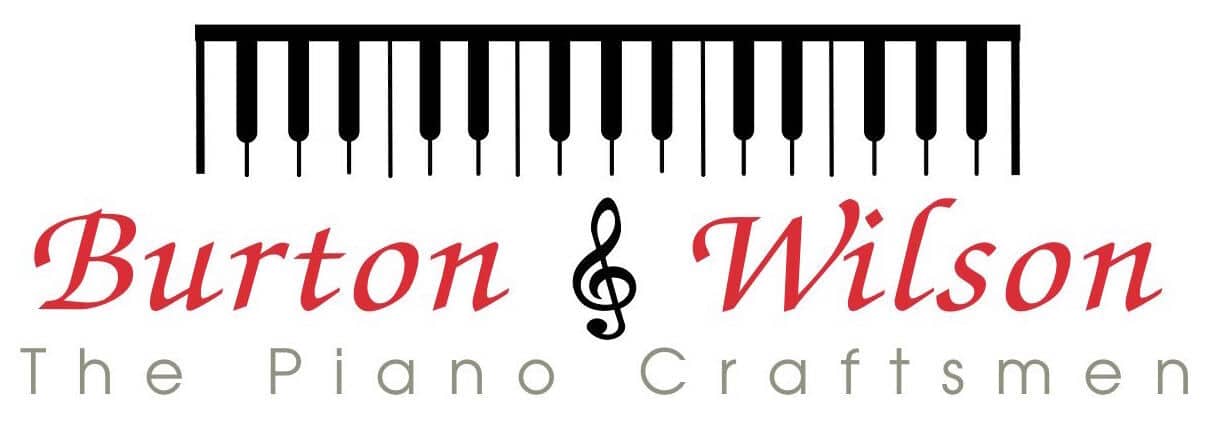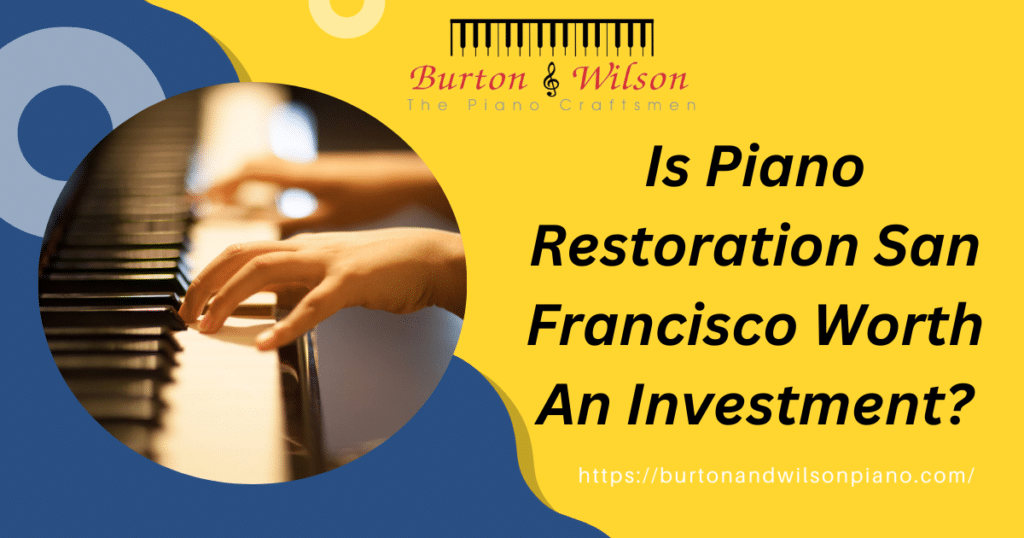Many moving components and years of research and development led to the exquisite instrument that we call the modern piano. The world’s top piano makers have constructed several hundred thousand, or millions of, pianos over the past 100 years.
Beautiful hardwoods and natural substances such as leather and wool make it among the most sought-after handmade heirlooms.
Despite their strength, all pianos are vulnerable to the effects of wear and age. With time wool and leather expand and become brittle with frequent use, while wood dries out and may become brittle and susceptible to cracking. So the owners often think is piano restoration in San Francisco worth the investment?
Let’s examine some of the common issues you have with an older piano and offer suggestions to decide if repair costs are justifiable compared to replacing the piano.
Antique Pianos & Sentimental Value
When we talk about antique pianos, we usually mean ones over 80 years old.
They are typically massive and tall. They are often purchased for almost nothing at flea markets or antique shops. They could also be passed on through the generations from one family member to another through inheritance.
It is among the most challenging situations to counsel clients through.
We often receive calls and service requests for pianos passed down through generations. Unfortunately, refinishing some of these instruments is usually significantly more expensive than the actual value that the piano is worth.
Ultimately, the decision on the best way to repair or replace an old or family heirloom piano will depend on the extent of reconstruction required and the emotional connection that the proprietor has. You may find it worthwhile or decide that a new(er) instrument is a better choice.
What Happens To A Piano When It Ages?
Most piano makers advise tuning your instrument four times in the initial year of its development and generally twice a year following that.
The reason behind this is that as the piano gets new, the strings stretch and the woods relax, which causes the instrument to drop pitch faster when it is unique.
Unless the piano is regularly moved, it will remain in tune for one year, depending on the circumstances in which it is set.
Other factors can affect the piano’s performance throughout years and even decades. Leathers and Felts compact the piano, eventually causing the components to go off-balance as designed initially.
Regulation Issue
This is referred to as a regulation issue. It is possible to determine the piano needs regulation because it feels unresponsive and less responsive across the piano’s range.
It may not be able to create the lively and tonal range that you once used to.
Many piano players only notice the changes for a short time since they occur at a languid pace. Instead, the players “adjust” to their play and don’t realize until they finally realize that their piano isn’t playing like it once was.
If the conditions are maintained in the piano, wool and leather begin to wear thin. The keys become wobbly, and the action becomes loud.
There may be broken strings or bass strings that sound a bit bass since the copper’s resonance decreases.
Pinblocks are prone to drying out, making the tuning pins loose. The case may have developed a plethora of scratches or faded by this stage.
Aged Pianos Repair or Rebuild?
Pianos are generally used for a long time with just regular maintenance (tuning and cleaning) required.
In the end, however, the piano will be at the point where it is necessary to make a decision – whether to invest in fixing or restoring your instrument or buy an entirely new model.
Here are a few last suggestions on whether to repair or replace
- Overall condition – Can it be repaired, or will the final product not be satisfactory? A qualified, object-oriented pianist technician (not the builder) is the best answer for this concern. If a piano has been through an accident, flood, or other moving damages, investing money in it is not worthwhile.
- Size, quality, and the type of instrument – professional-grade and Concert Grands typically have impressive durability and the ability to rebuild. But smaller, less expensive (initially) pianos usually aren’t as powerful.
- Cost of repairs vs. replacement – Extensive rebuilding/restoration may be more than the cost of a new, comparable piano. For larger, more professional instruments, the cost of rebuilding or restoration services can be as low as one-third of the price of a brand-new instrument.
Pros and Cons
Pros:
-
-
Historical Significance
- Piano restoration in San Francisco will preserve a bit of the past. Many pianos have been in use for a long time and could be played by famed musicians or handed down over to the generations of the same family. Restoring a piano from the past can restore the splendor and class of a previous time.
-
-
Quality
- The older pianos were usually constructed with top-quality materials and artistry.
The wood used on the older pianos tends to be superior to those used for modern ones. Restoring a piano from the past can restore the original sound quality, and it could have a more robust, sounding tone than a modern piano.
-
Personal Value
- The piano may have sentimental value, like being an heirloom from the family or a favorite instrument; restoring it will bring happy memories back and help preserve its value for the future.
Cons:
- Piano restoration in San Francisco could be costly. Based on the degree of the work, it can cost more than purchasing a brand-new piano.
It is essential to determine if the historical or sentimental value of the piano is greater than the restoration cost.
- The process of restoring an older instrument can take a lot of time. It can be a lengthy process and requires specialized abilities and expertise.
If you’re unwilling to put in the effort or employ a professional, restoring an old piano might not be possible.
Final Verdict
Old pianos have fewer capabilities than modern pianos.
They might need to be equipped to play all notes, and the keys may be less responsive than the modern piano. When the instrument is meant to be used regularly, it is essential to consider these limitations.
Piano restoration in San Francisco by Burton & Wilson Piano services can be rewarding for those who love the beauty and history of vintage pianos.
It is essential to consider a piano’s cost of time, price, and limitations before beginning a restoration project.


 COCKTAILS & More
COCKTAILS & More